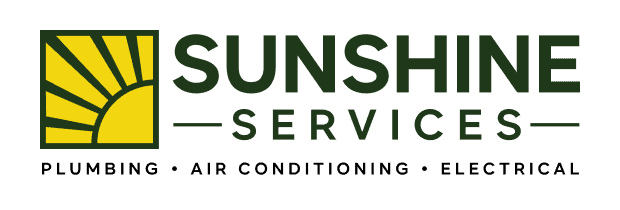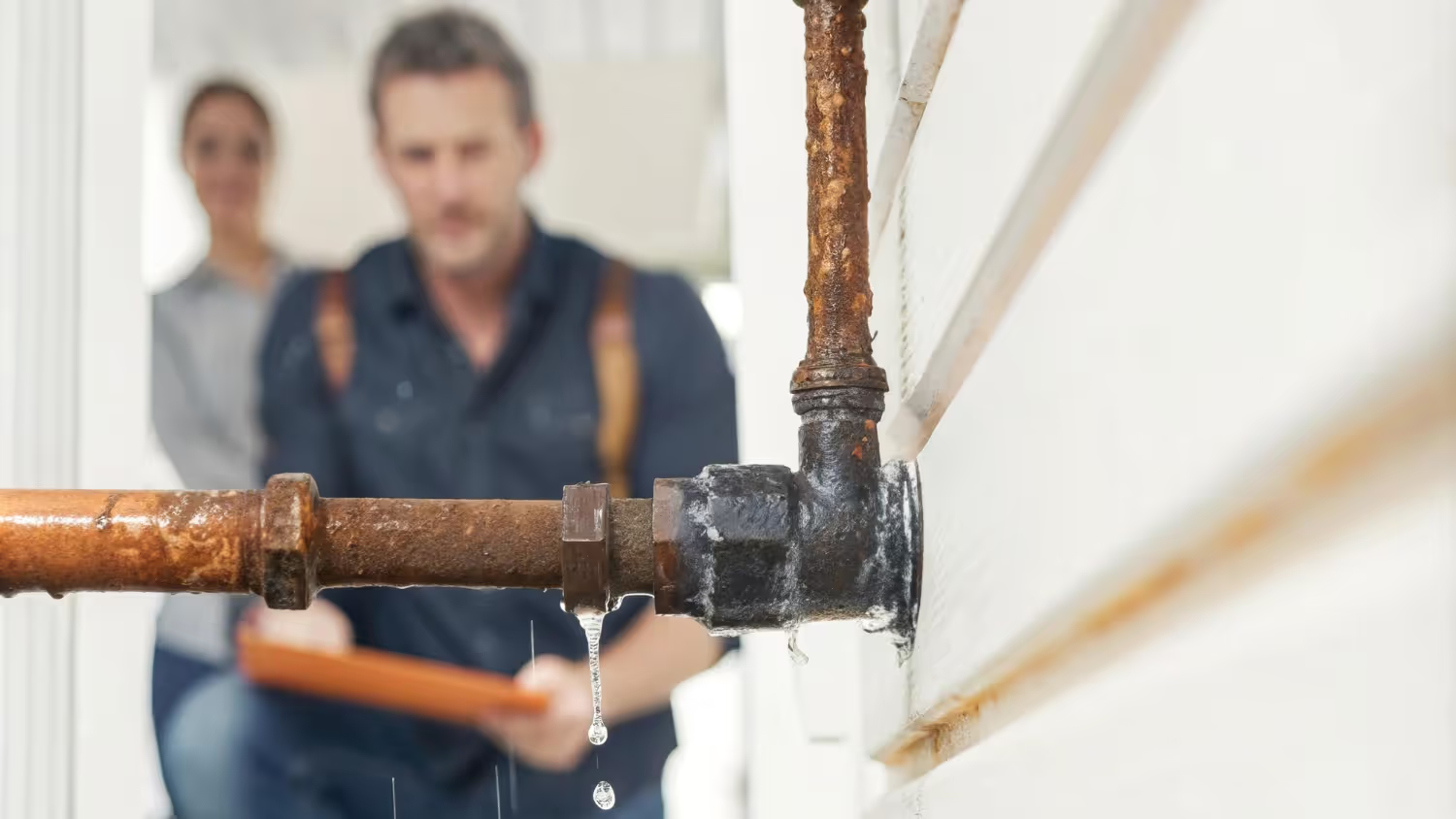


FREE Water Heater
With every whole house repipe purchase. Free brand-new water heater or credit towards a tankless water heater.
.svg)
.svg)
.svg)
.svg)



With every whole house repipe purchase. Free brand-new water heater or credit towards a tankless water heater.
.svg)
.svg)
.svg)
.svg)

Water leaks in your Gainesville home can cause thousands of dollars in damage while driving up monthly utility bills, making early detection crucial for protecting your property and wallet. Professional leak detection services in Gainesville use advanced technology to locate hidden leaks without damaging walls, floors, or landscaping, saving homeowners both time and money.
According to the EPA’s WaterSense program report, the average U.S. household loses nearly 10,000 gallons of water per year due to leaks like dripping faucets or worn toilet flappers . This highlights the importance of early Gainesville leak detection to prevent excessive water loss.
We understand that identifying water leaks early prevents costly structural damage and mold growth that often develops in Florida's humid climate. Modern leak detection methods can pinpoint exact leak locations within pipes, slabs, and underground systems using non-invasive techniques that eliminate guesswork.
The process involves understanding warning signs, knowing when to call specialists, and recognizing the technology behind accurate leak detection.
In this article, we'll explore how Gainesville leak detection specialists work, what services cost, and how to protect your home from water damage through proactive leak detection strategies.
Here's what you need to know:
Let's dive in!
Professional leak detection uses specialized equipment to locate hidden water leaks without damaging property. Leak detection in Gainesville helps identify problems before they cause expensive damage to homes and businesses.
Professional leak detection specialists use advanced technology to pinpoint water leaks without invasive methods. Electronic listening devices detect the sound of water escaping from pipes behind walls or under concrete slabs.
Thermal imaging cameras identify temperature variations that indicate moisture presence. These tools show us exactly where leaks occur without guessing or unnecessary excavation.
Ground-penetrating radar maps underground pipe locations and identifies potential problem areas. Pressure testing isolates specific sections of plumbing systems to narrow down leak locations.
Common Detection Methods:
State-of-the-art leak detection equipment can locate leaks within inches of their actual position. This precision saves property owners thousands in unnecessary repairs and property damage.
Visible water leaks appear as obvious dripping faucets, running toilets, or wet spots on walls and ceilings. These leaks are easy to identify but represent only a fraction of total water loss in most properties.
The EPA data shows that installing WaterSense-labeled toilets can save an average family 13,000 gallons of water per year and $130 in annual water costs, while replacing showerheads and faucets yields additional savings.
Hidden leaks occur behind walls, under concrete slabs, or in underground pipes. These leaks often go undetected for months or years while causing structural damage.
Signs of Hidden Leaks:
Slab leak detection requires specialized equipment because concrete conceals the problem area. Water can travel significant distances before appearing as visible damage.
Underground leaks between the meter and house foundation often show up as soggy yard areas or unusually green grass patches.
Professional leak detection specialists save property owners money by locating problems quickly and accurately. Licensed leak detection companies in Gainesville have insurance coverage and proper equipment for safe, effective service.
Early leak detection prevents major structural damage that costs thousands more than prompt repairs. Water damage spreads rapidly through building materials and creates mold growth conditions.
Key Advantages:
We recommend professional leak detection services for any suspected water loss issues. DIY methods often miss hidden problems or cause additional damage during investigation attempts.
Specialists can detect leaks in walls, ceilings, and underground pipes that homeowners cannot access safely. Their non-invasive methods preserve property integrity while solving water loss problems efficiently.
Hidden water leaks can silently damage your property while increasing utility bills. We can identify these leaks through specific symptoms, use targeted detection methods, and understand the potential consequences of delayed repairs.
Increased Water Bills represent the most obvious indicator of hidden water leaks in your home. We often see bills rise 25-50% without changes in usage patterns.
Water stains and discoloration appear on walls, ceilings, or floors. These yellowish-brown marks indicate water has penetrated building materials.
We notice musty odors in areas where moisture accumulates. This smell often develops before visible mold appears.
Sound indicators include dripping, running water, or hissing noises when fixtures are turned off. We can hear these sounds most clearly during quiet periods.
Flooring changes such as warped wood, loose tiles, or soft spots indicate water damage beneath surfaces. Carpets may feel damp or develop unexplained wet areas.
Water pressure drops occur when leaks reduce flow to fixtures throughout the home.
Water meter testing provides the most reliable detection method. We turn off all water sources, record the meter reading, wait two hours, then check again for movement.
Visual inspections focus on areas around water heaters, under sinks, near appliances, and in basements or crawl spaces. We look for puddles, stains, or mineral deposits.
Food coloring tests work effectively for toilet leaks. We add several drops to the tank and wait 30 minutes without flushing to see if color appears in the bowl.
Detection Method
Time Required
Effectiveness
Water meter test
2-3 hours
High
Visual inspection
30-60 minutes
Medium
Food coloring test
30 minutes
High (toilets only)
Professional leak detection uses specialized equipment like acoustic sensors and thermal imaging cameras to locate hidden pipe leaks behind walls.
Structural damage occurs when water weakens wooden frames, drywall, and foundation materials. We see floor joists rot, walls become unstable, and concrete develop cracks over time.
Mold growth begins within 24-48 hours in moist environments. This creates health hazards including respiratory problems and allergic reactions for occupants.
Electrical hazards develop when water contacts wiring or outlets. We risk short circuits, electrical fires, and shock dangers in affected areas.
Property value reduction results from water damage, mold contamination, and necessary repairs. Homes with leak history often require disclosure during sales.
Insurance complications arise because many policies exclude gradual water damage. We face coverage denials for long-term leak damage that could have been prevented through early detection.
Increased utility costs compound monthly as leaks waste thousands of gallons. A small leak can waste over 10,000 gallons annually, significantly impacting household budgets.
Professional leak detection follows a systematic process using specialized equipment to locate hidden water leaks without damaging property. The process combines visual inspection, advanced technology, and targeted testing to pinpoint exact leak locations in walls, floors, and underground systems.
Modern leak detection relies on multiple technologies working together to identify leaks accurately. Professional leak detection services in Gainesville use these tools to provide precise results without destructive excavation.
Acoustic sensors detect sound frequencies created by water escaping from pipes. These devices amplify the distinct sounds of flowing water behind walls or underground. We place sensors at multiple points along suspected pipe routes to triangulate leak locations.
Infrared cameras identify temperature variations caused by water leaks. Water creates cooler or warmer spots depending on the surrounding material temperature. These thermal images reveal moisture patterns invisible to the naked eye.
Electronic leak detection equipment uses electromagnetic signals to trace pipe paths and identify disruptions. Ground penetrating radar maps underground utilities and identifies anomalies in soil density caused by water accumulation.
Moisture meters measure humidity levels in building materials like drywall and flooring. Elevated readings indicate potential water intrusion areas requiring further investigation.
Leak location requires systematic elimination of potential sources throughout the plumbing system. We start with visible signs and progress to hidden areas using technology.
Water meter testing confirms active leaks by monitoring usage when all fixtures are turned off. A spinning meter indicates water flow somewhere in the system. We record baseline readings and check again after 30 minutes.
Pressure testing isolates sections of plumbing to narrow leak locations. We close valves to test individual zones like bathrooms or kitchen areas. Pressure drops indicate leaks within that specific section.
Visual inspection examines accessible pipes, connections, and fixtures for obvious damage. We check under sinks, around toilets, and near water heaters for drips or corrosion signs.
Sound detection involves listening for water flow sounds in walls and floors. We use acoustic equipment at pipe access points to follow sound patterns toward leak sources.
Immediate action prevents water damage from spreading and reduces repair costs. The response depends on leak severity and location within your property.
Shut off water supply at the main valve or fixture-specific shutoff. This stops additional water flow and prevents further damage. Know your main shutoff location before emergencies occur.
Contact professional services for repairs beyond simple fixture adjustments. Gainesville leak detection specialists provide 24-hour emergency response for serious leaks.
Document damage with photographs for insurance claims before cleanup begins. Take pictures of affected areas, damaged belongings, and visible pipe problems.
Remove standing water immediately to prevent mold growth and structural damage. Use towels, mops, or wet vacuums depending on water quantity. Increase ventilation with fans or dehumidifiers.
Monitor affected areas for several days after repairs to ensure leaks are completely resolved. Check for new moisture signs or recurring problems requiring additional attention.
The estimated leak detection cost in Gainesville is $178.74 based on local labor rates for licensed companies. Several factors influence pricing including leak type, location complexity, and equipment requirements.
Location accessibility significantly impacts costs for leak detection services. Underground pipe leaks require specialized equipment and may increase pricing compared to visible plumbing issues.
The type of leak detection method affects total expenses. Electronic listening devices cost less than thermal imaging cameras or ground-penetrating radar systems.
Key pricing factors include:
Emergency or after-hours service calls typically add 25-50% to standard rates. We see higher costs for complex commercial properties compared to residential homes.
The extent of preliminary investigation needed varies by case. Simple fixture leaks take less time than comprehensive slab leak detection requiring multiple testing methods.
Professional leak detection in Gainesville, FL ranges from $150-$400 for most residential services. Standard water leak detection falls within this range for average-sized homes.
Common service pricing:
Service Type
Price Range
Basic leak detection
$150-$250
Slab leak detection
$200-$400
Sewer line detection
$250-$500
Electronic pipe location
$175-$300
Slab leak detection services command higher rates due to specialized equipment requirements. These services often require concrete scanning and electronic listening devices.
Multiple leak locations on the same property may qualify for package pricing. We find most companies offer reduced per-location rates when detecting several issues during one visit.
Diagnostic fees are sometimes applied toward repair costs if customers proceed with the same company. This arrangement helps offset initial detection expenses.
Knowing when to contact a professional can save thousands in water damage costs and prevent structural issues. Local leak detection experts use specialized equipment to identify problems before they become major repairs.
Small leaks often seem harmless, but we've seen them cause significant damage over time. A drip that starts under your kitchen sink can lead to rotted subflooring within months.
Water damage spreads quickly through building materials. Even minor leaks can create mold growth within 24-48 hours in Florida's humid climate.
Common signs of small leaks include:
We recommend calling leak detection specialists immediately when you notice these warning signs. Early intervention prevents costly structural repairs and health hazards from mold exposure.
Insurance companies often refuse claims for long-term water damage that could have been prevented. Documenting professional leak detection services protects your coverage rights.
Local professionals understand Gainesville's specific plumbing challenges, including clay soil conditions that affect underground pipes. Gainesville leak detection companies know which pipe materials were commonly used in different neighborhoods and decades.
We work with local experts who respond quickly to emergencies. Their proximity means faster service calls and lower travel costs compared to regional companies.
Local advantages include:
Certified plumbers in Gainesville also maintain proper licensing and insurance required by Alachua County. This protects you from liability during detection work.
Local companies build their reputation on community relationships. They're more likely to stand behind their work and provide ongoing support.
We recommend verifying that your chosen company uses non-invasive detection methods. Modern leak detection equipment includes thermal imaging, acoustic sensors, and electronic line tracing that locate leaks without damaging property.
Check for proper licensing through the Florida Department of Business and Professional Regulation. Certified plumbers must maintain continuing education and insurance requirements.
Essential qualifications to verify:
Ask about their detection equipment and methods before hiring. Companies should explain their process and provide written estimates for both detection and potential repairs.
Review online ratings on multiple platforms, but focus on recent reviews that mention specific services. Established companies often have consistent positive feedback over several years.
Request quotes from multiple providers to compare pricing and services. However, extremely low prices often indicate inexperienced technicians or outdated equipment.
We have explored the comprehensive leak detection services available throughout Gainesville, Florida. The city offers multiple specialized companies equipped with advanced technology and trained professionals.
Sunshine Services utilizes non-invasive methods to locate leaks accurately. Their infrared technology provides precise results without damaging property structures.
We serve both Gainesville and surrounding areas. They specialize in slab leak detection using advanced tools and expert technicians.
Our company focuses on swift water leak detection and intrusion solutions. And we provide comprehensive plumbing services throughout Alachua County.
We also offer free estimates and can respond quickly to emergency situations.
The investment in professional leak detection saves money on water bills and prevents extensive property damage. Early detection protects foundations, flooring, and structural elements from costly water damage repairs.
Contact our team today and keep your plumbing system and your home safe!